Article by Yvonne Lo
Photo credit Niko
MC Yan and Fab 5 Freddy attended the screening of New York Asian Film Festival’s (NYAFF) feature Bruce Lee’s “Enter the Dragon” at Lincoln Center’s Walter Reade Theater. MC Yan and Fab 5 Freddy is the perfect mix of two different cultures collaborating- American/Chinese and Hip-Hop/Kung-Fu.
Artist and rapper MC Yan, aka “godfather of Chinese hip-hop,” is one of the first artists to ever rap in his native language, Cantonese. He is also the founder of Fu@kinMusic , his music label, NSBQ Street label, his design label, and Radiodada.hk, an underground online radio station where he can express himself creatively.
Fred Brathwaite – better known as the legendary hip-hop pioneer Fab 5 Freddy – is a cultural legend and one of the key architects who brought hip-hop culture worldwide and mainstream. He shot to stardom as the first host of the hip-hop television show “Yo! MTV Raps” was even given a shout-out in Blondie’s song ‘Rapture’ with the line, “Fab 5 Freddy told me everybody’s fly.”
Why did you guys choose kung-fu and hip-hop?
FAB 5 FREDDY: The idea came together while MC Yan and I were communicating via Skype. We found similar understandings of hip-hop culture and for the idea of Bruce Lee, MC Yan had studied Bruce Lee thoroughly even though it is not fully embraced by the government and Bruce Lee was a big hero for me. Lee was also a big influence in the American urban culture. Even breakdancing was one of them, it was heavily influenced by the kung-fu esthetics and every kid in my neighborhood loved it. So, I thought to myself, “Oh wow! What a great idea.”
I am a big fan of kung-fu and kung-fu has had a big influence on America’s hip-hop and urban culture going back to the hit in the 70’s “Kung-Fu Fighting.” Everybody in the hood loved that and all through so, the reference made it all the way to the 90’s. The first rap group, Fu-Schnickens, imitated kung-fu movies in their videos. The Wu-Tang Clan took it 100% and really absorbed the whole idea.
MC YAN: I was born in Hong Kong, and being one of the first to do Chinese rap and graffiti, why not experiment with these two pop cultures and see what sparks.
How did you stumble into the hip-hop culture?
FAB 5 FREDDY: It was a calling. It called me at an early age. I was just a kid growing up in New York and hearing it, loving it, and following the DJ’s since the 70’s. It was a big thing, a new thing, and I wanted to be a part of it. I became an integral part of it. I became responsible for the first film of hip-hop, KungFu Wildstyle. Wildstyle was a style of graffiti but also the cult film that visually began the surge of hip-hop culture. I became connected with it and helped grow up with it, and fall into twine with it, so Forever.
In terms of media, as a painter heavily influenced by popular culture and films, it allowed us to have access to redefine other things through the culture. For example, we both make paintings and are connected through music and to have these different mediums of culture is such a cool connection. It’s interesting for someone like MC Yan to be so well-known in different parts of China, people who realize who he is ask him for autographs, because he is underground, for real. His music doesn’t get played on the radio, but people know him throughout China as the pioneer.
MC YAN: I’ve been censored for a long time.
Many people categorized you as a political hip-hop artist, what is a political hip-hop artist?
MC YAN: Well, many people see that my lyrics are political, but actually I’m not very interested in politics. I’m mostly interested in society, the people. It’s different.
How is it working together?
FAB 5 FREDDY: Fun. I learned a lot from MC Yan. He really understands China, and when we were in Hong Kong together, I really learned a lot. It’s great to have someone explain because China is so big and vast, changes so many nuances. Especially from MC Yan’s perspective, it’s super unique because he’s doing his thing, his way in making connections with other people. Kind of like what hip-hop was here in the beginning at first, it found a way to happen without being raised by a mainstream culture.
How is it working with an American culture?
MC YAN: This is where everything happened. So, I feel like a kindergarten. It takes time, but it is a lot to digest.
What is your favorite thing about the American culture?
MC YAN: That you can hear whatever. In China, you cannot hear whatever. I’m not talking about what you can say whatever, but before freedom of speech.
FAB 5 FREDDY: At my house, I have a TV with many foreign channels. So while I’m flicking through the ten to fifteen Asian channels, MC Yan explained what was going on. First, there were a couple of Korean channels, and then it was Taiwan. He told me to notice the way they were dressed. Then we went to channels from China, and you can see the difference. He explained to me what each show was about. In Taiwan, they were dressed more modern. But, in China, MC Yan explained to me the difference stuff that can’t be viewed in China TV, for example you would see more uniform. If I were to just look at it, I would have never known. MC Yan hadn’t told me, I don’t think I would have ever noticed.
MC YAN: You have that much people in uniform on TV. A lot of films have this kind of censorship – romance, war, family.
FAB 5 FREDDY: Hip hop in the late 80s and early 90s, where there it had a conscious period and groups like Public Enemy, X-Clan and Careless One. Not so much talking about politics, but about living a better lifestyle and the system. Best example is Public Enemy who recently went into the Hall of Fame. There is a tradition within rap, about rappers talking about real issues. On Kanye’s new album, he has a song called “New Slaves” which is kind of like a Public Enemy song, but done 25 years later. That is how people can talk about real issues and things relevant.
MC YAN: Although my music is censored, many people use my lyrics to protest.

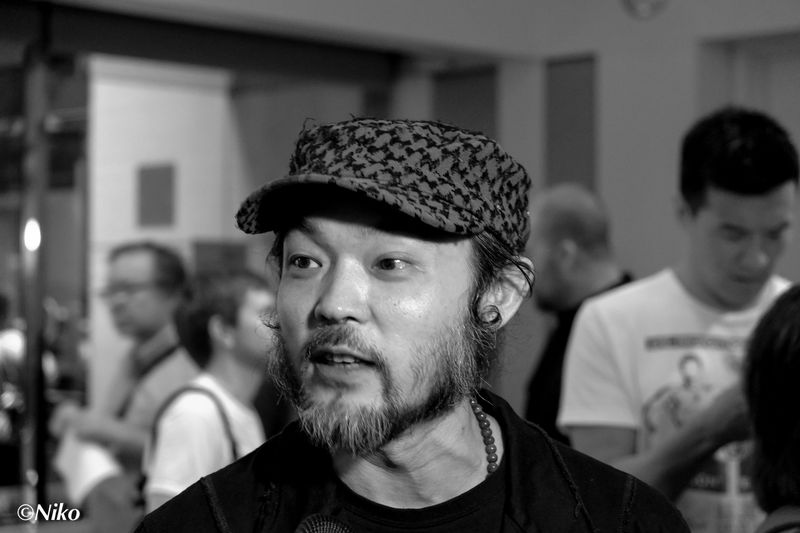
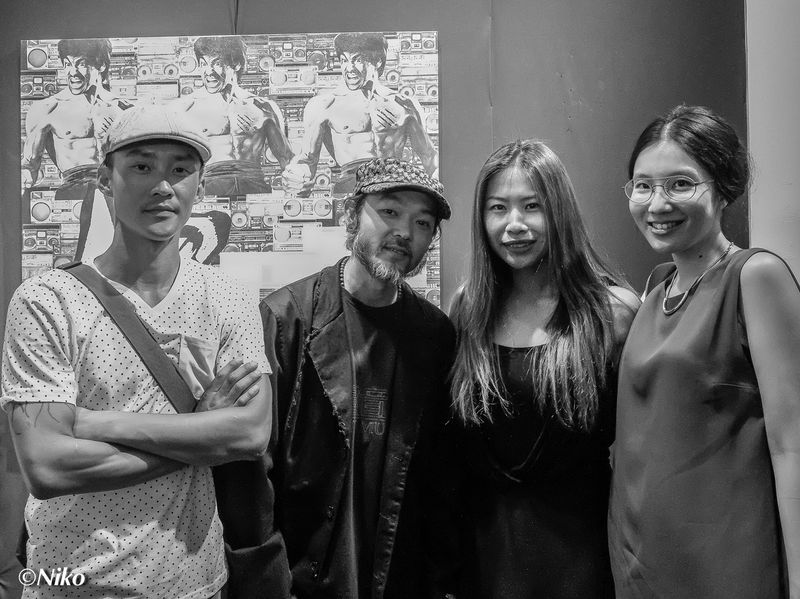
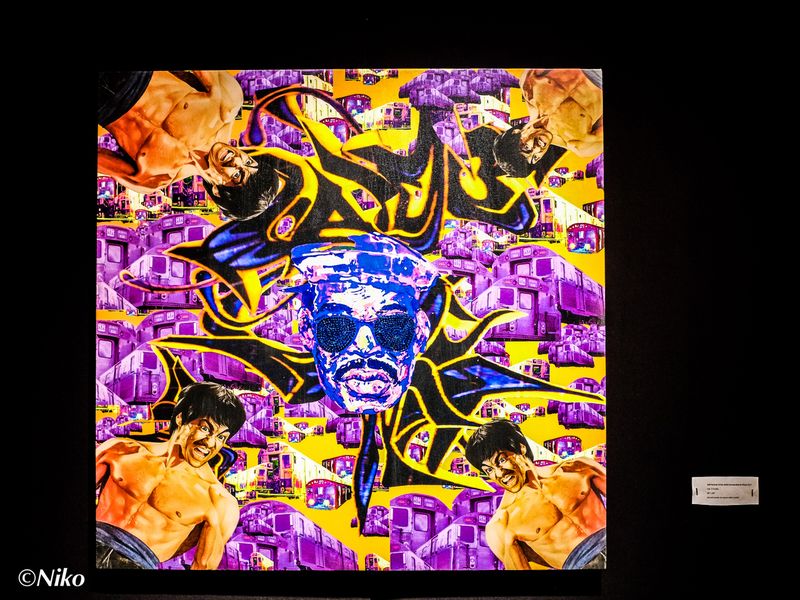
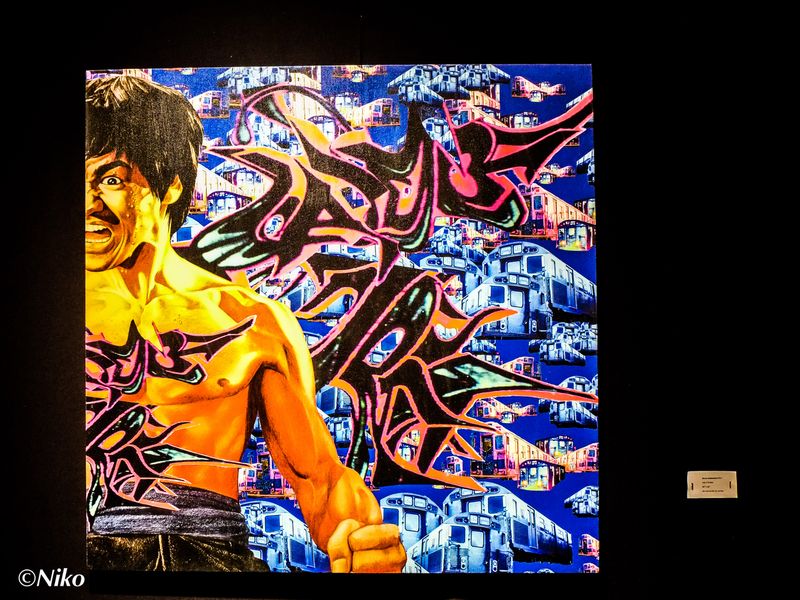
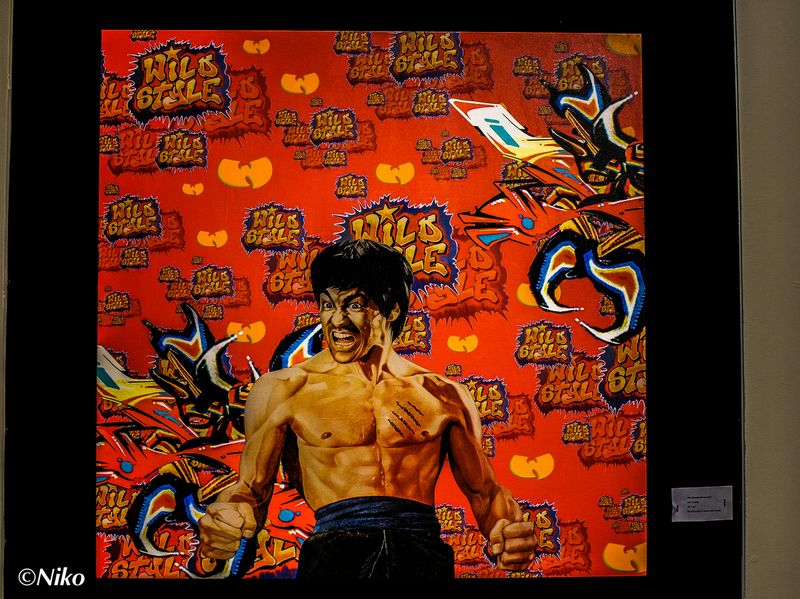
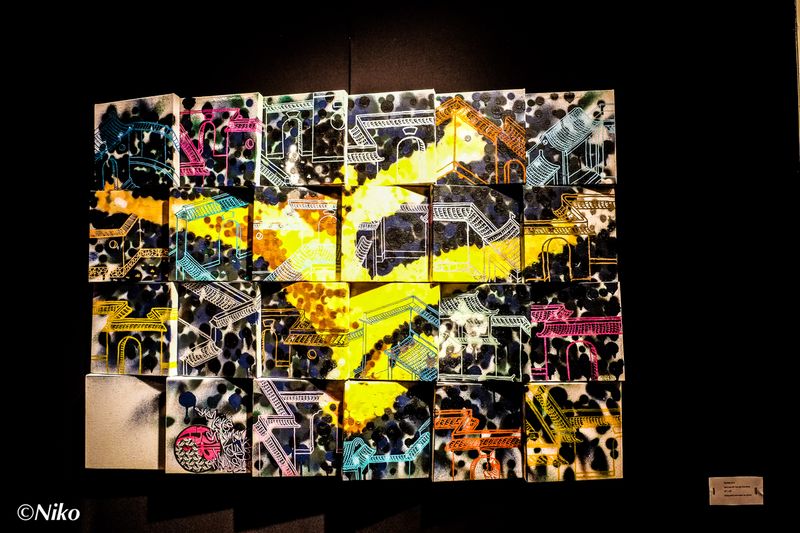
Love this! This is a really interesting cultural collaboration – the art looks cool too!